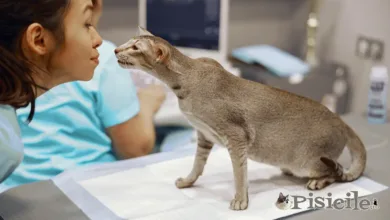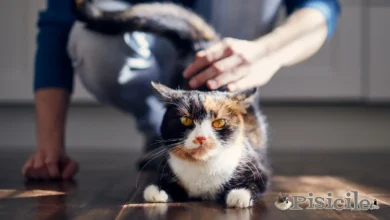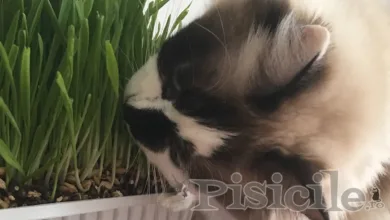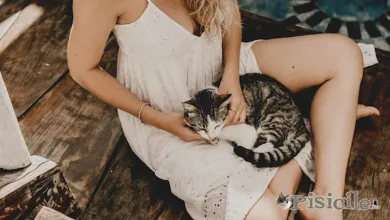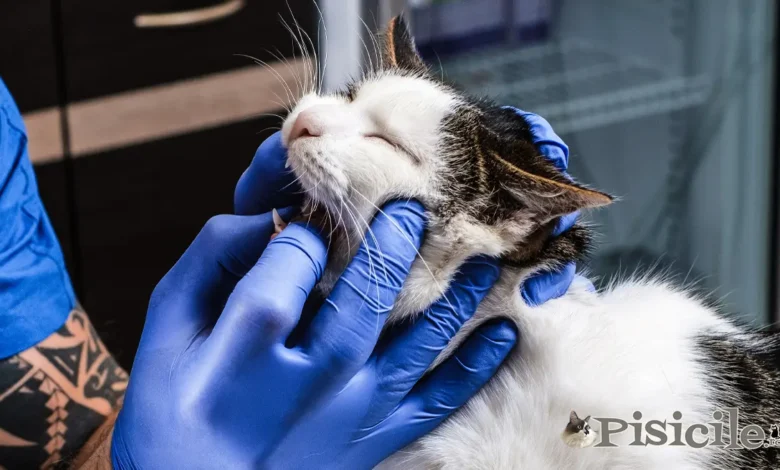
Stomatitis in cats. Inflammation of the mucous membrane in the oral cavity.
Stomatitis in cats is inflammation of the mucous membrane in the oral cavity, manifested by redness, pain and loss of normal functions. It is often a chronic disease that begins at the level of the gums and gradually spreads to other areas of the oral mucosa, also known as chronic feline gingivostomatitis, indicating long-term inflammation of the gums and mouth.
This condition also often affects the caudal oral mucosa (the back of the mouth, after the premolars and molars) and may also involve pharyngitis, characterized by inflammation of the pharynx. All of these conditions cause discomfort to the cat, manifested by symptoms such as pain on swallowing, halitosis, inflamed and bleeding gums, food refusal and weight loss.
Subject
Causes of stomatitis in cats
There are various causes of stomatitis in cats. When the oral mucosa comes into contact with numerous irritants, potential allergens and abrasive objects from food or toys, they can trigger inflammation of the oral mucosa. Also, factors such as a weakened immune response, hyperactive immune system or poor dental hygiene can influence the evolution of the disease.
Bacterial and viral infections, including feline calcivirus (FCV) and feline herpes virus (FHV), are commonly associated with stomatitis. Also, immune diseases, physical irritations, metabolic problems and immune system insufficiency can contribute to the development of this condition.
Symptoms of stomatitis in cats
The symptoms of stomatitis in cats are varied and can significantly affect the well-being of the pet.
The main clinical manifestations include:
Bad Breath (Halitosis). Cats with stomatitis may have bad breath, which is often associated with mouth infections.
Also read: Why does the cat's mouth smell bad? Causes and Treatment
Difficulty feeding (Dysphagia). Pain during swallowing can cause the cat to exhibit feeding difficulties, with possible food refusals.
Also read: Does the cat eat without chewing? Causes and Solutions
Reduced appetite. Stomatitis can negatively influence the cat's appetite, leading to a reduced appetite or complete refusal to eat.
Excessive salivation. Affected cats may drool profusely, manifested by excessive wetting of the mouth.
Also read: Why does hypersalivation occur in cats - Excess salivation
Bleeding from the mouth. Inflammation of the mucosa can cause bleeding gums, and blood may be visible in the saliva or on the cat's food. This can indicate stomatitis in cats, but there can be many other causes.
Paw to mouth shower. To try to relieve oral pain, some cats may bring their paws to their mouths or frequent the affected area with their forelimbs.
Oral pain (during examination). When examining the mouth, obvious signs of pain can be seen, and the cat may react negatively to touch.
Weight loss. Due to feeding difficulties and reduced appetite, cats with stomatitis may experience significant weight loss.
Untidy appearance. Due to the discomfort and pain, affected cats may neglect their personal hygiene, presenting an unkempt appearance and sometimes with matted fur.
Red, swollen and painful appearance of the oral tissue. When examining the mouth, the mucosa lining the oral cavity will be highlighted by a red color, swelling and pain. Possible ulcerations may appear on this affected surface.
Inflammation of the sub-mandibular lymph nodes (Lymphadenopathy). These lymph nodes can become inflamed in response to infection and inflammation in the mouth area.
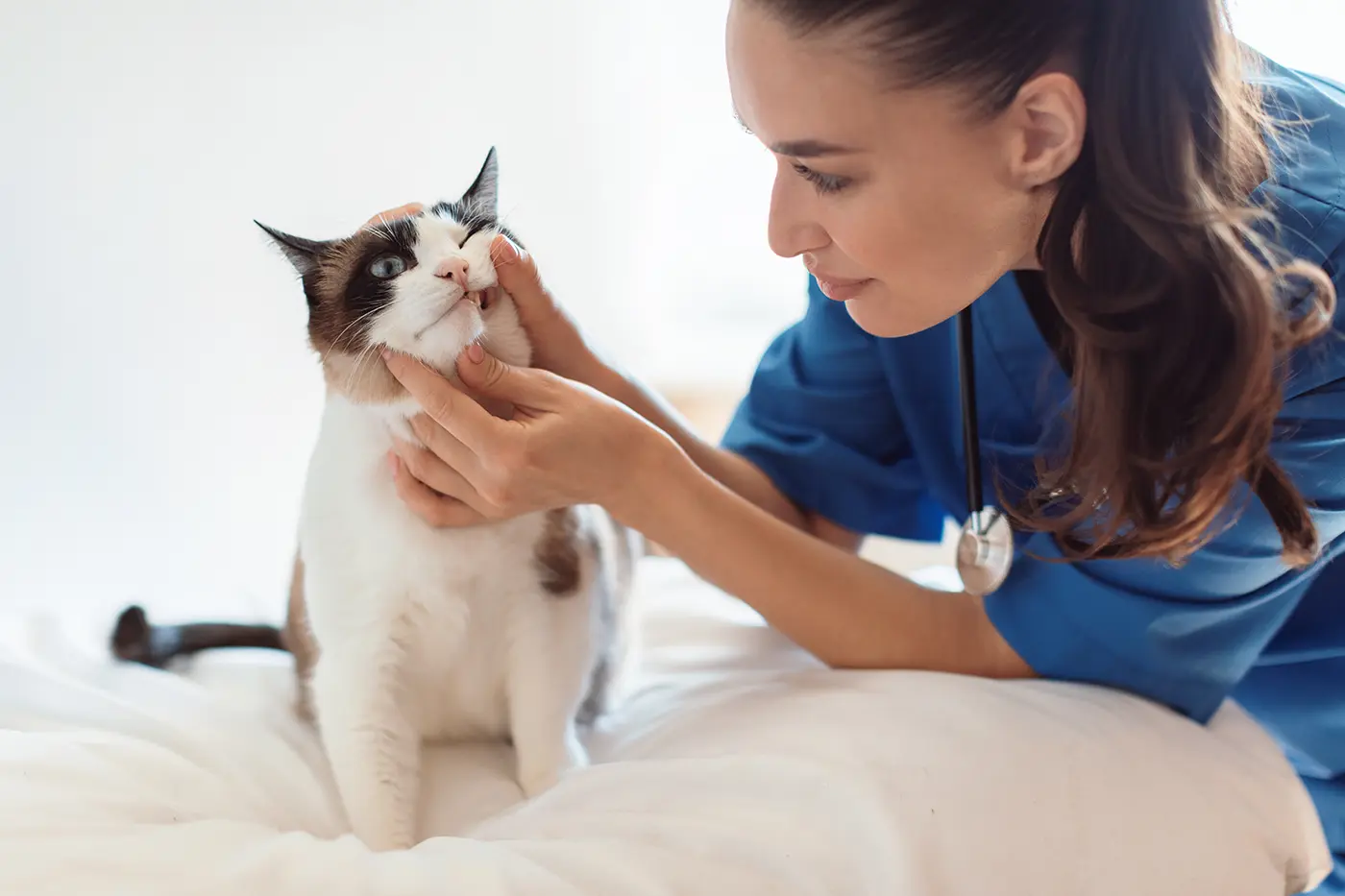
Although stomatitis is more common among older cats, certain breeds such as Maine Coon, Siamese, Persian or Abyssiana can also develop juvenile stomatitis, affecting specimens under 3 years of age.
Treatment of stomatitis in cats
Treatment of stomatitis in cats often involves the administration of antibiotics or antifungals, regular oral hygiene, special nutrition and, in severe cases, extraction of the affected teeth. For an accurate diagnosis and an appropriate treatment plan, it is very important that your cat is consulted by a veterinarian. Stomatitis in cats should not be ignored. This disease can lead to serious complications and affect the overall health of the cat.
Treatment for stomatitis in cats is often similar to that for gingivitis and involves several aspects.
Medication administration. In the case of a bacterial or viral infection, medications prescribed by your veterinarian, such as antibiotics or antivirals, may be essential. They help fight pathogens and reduce inflammation.
Rigorous oral hygiene. Regular tooth brushing is crucial to managing stomatitis. Cats can be prone to plaque, and poor dental hygiene can make the condition worse. Oral hygiene products such as special cat toothpaste may be recommended.
Dental extraction. In severe cases, especially when the inflammation persists and affects the gums significantly, extraction of the affected teeth may be necessary. This can eliminate outbreaks of infection and associated discomfort.
Special food. A special diet, such as wet food or soft-textured food, may be recommended to make feeding easier for the cat and reduce mouth irritation.
Anti-inflammatory treatment. Anti-inflammatory medications, such as corticosteroids, may be prescribed to reduce inflammation and relieve pain. These can be given as injections or as oral medications.
Ongoing monitoring and care. Stomatitis can be a chronic condition, and continuous monitoring of the cat's health is essential. Regular visits to the veterinarian for examinations and treatment adjustments are important for maintaining the cat's quality of life.
Stomatitis in cats can be a challenge for both the animal and the owner. With proper management, medical treatment and regular monitoring, the cat's quality of life can be improved. It is important to work with your veterinarian to establish a personalized treatment plan and ensure a healthy and happy life for your pet.
